Fine Motor Skills Normal Geometry Worksheets for Ages 3-6
8 filtered results
-
From - To
Discover our engaging Fine Motor Skills Normal Geometry Worksheets tailored for children aged 3-6! These worksheets are designed to enhance fine motor development while introducing fundamental geometric concepts. Each activity combines fun and learning, allowing young learners to practice their pencil grip, hand-eye coordination, and dexterity by tracing, coloring, and connecting shapes. Perfect for both classroom settings and home learning, our resources help children recognize shapes, understand spatial relationships, and nurture creativity. Foster a love for geometry early on and watch your child's fine motor skills flourish with these exciting, age-appropriate worksheets that make learning a delightful experience!
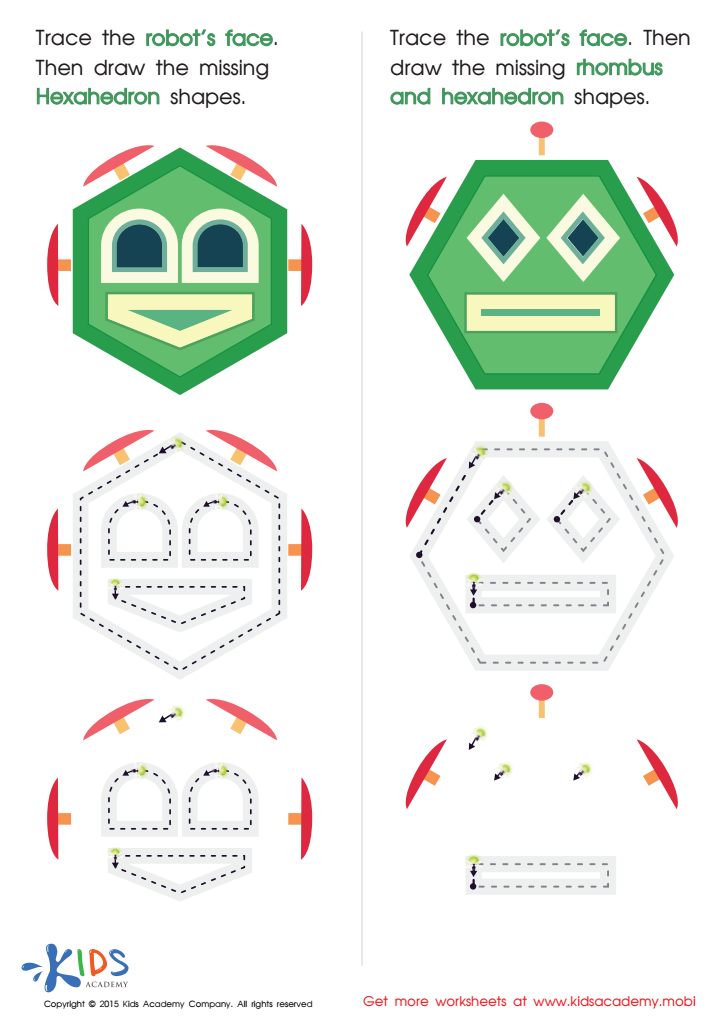

Practice Drawing Hexahedrons And a Rhombus Worksheet


Preschool Geometry Match Up Worksheet
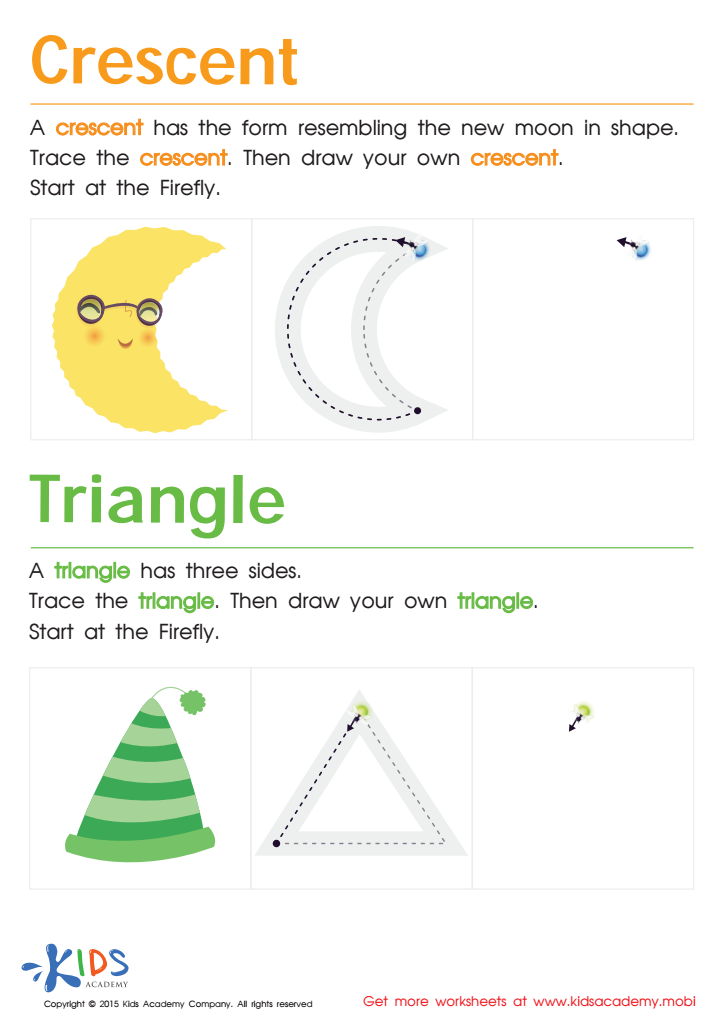

Learning to Draw Crescents And Triangles Worksheet
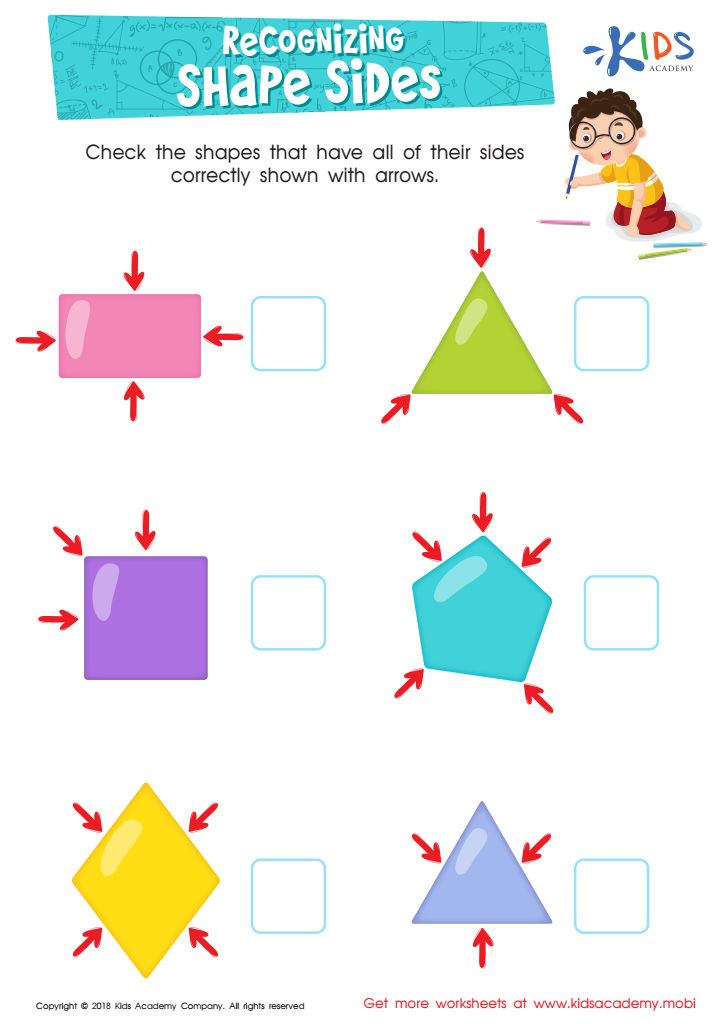

Recognizing Shape Sides Worksheet
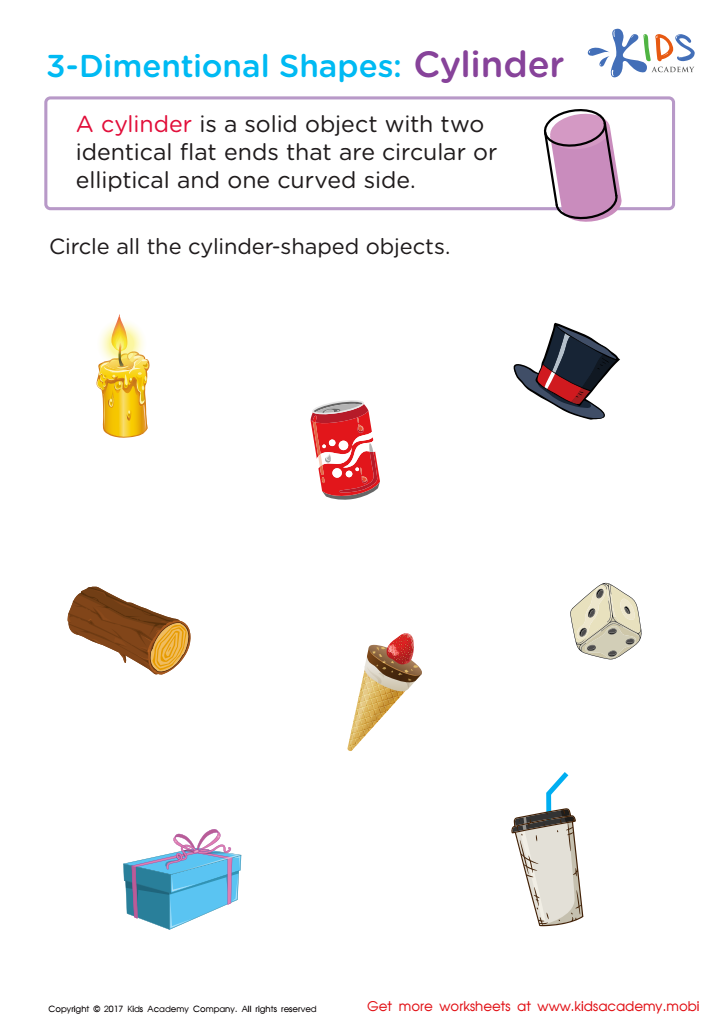

Three–Dimensional Shapes: Cylinder Worksheet
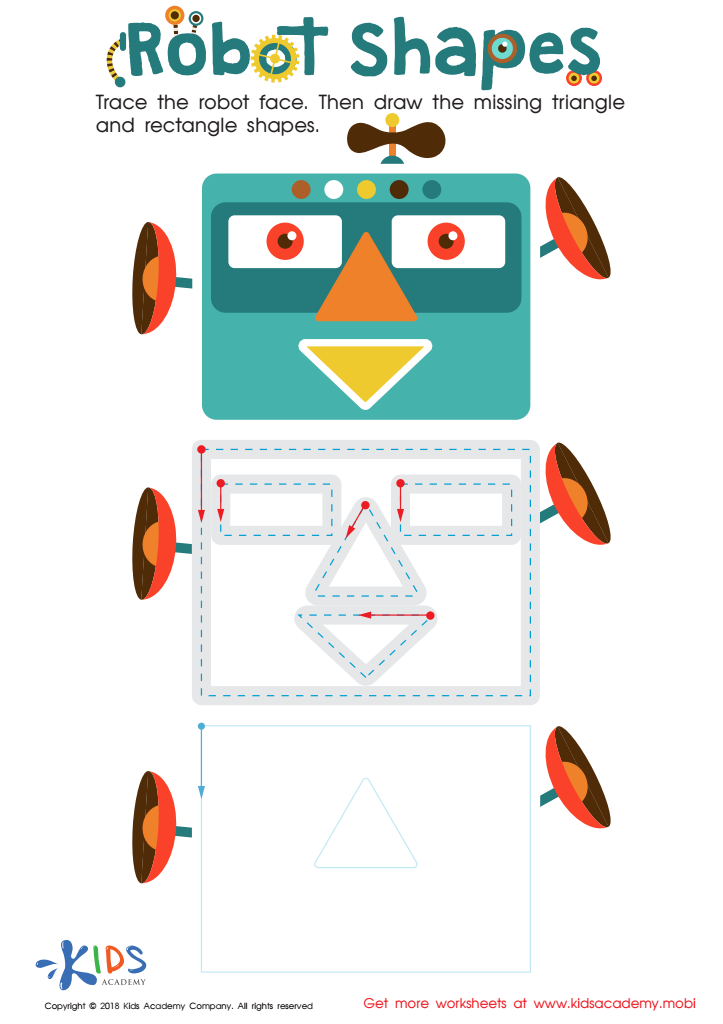

Robot Shapes Worksheet
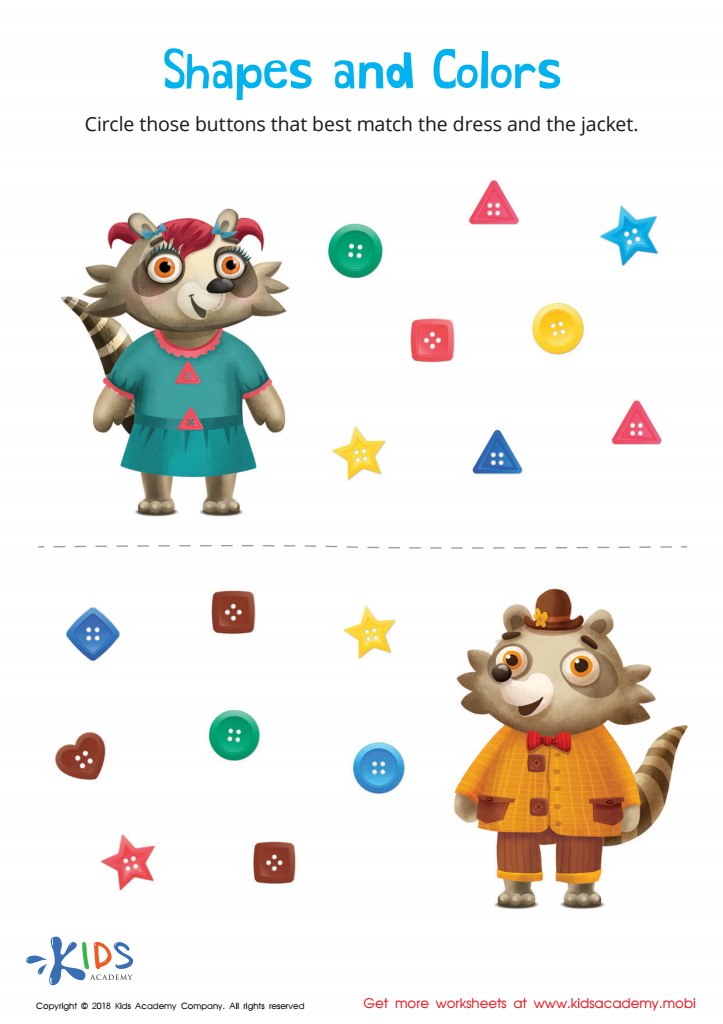

Shapes and Colors Worksheet
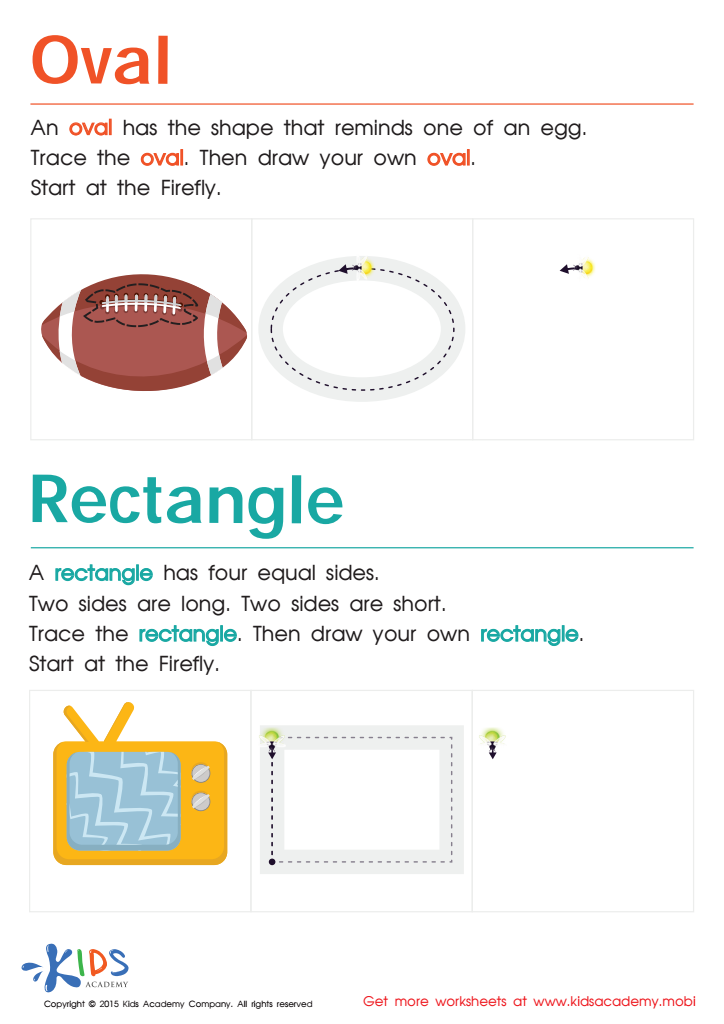

Easy Drawing of Ovals And Rectangles Worksheet
Fine motor skills and geometric concepts are foundational components of early childhood development. For children aged 3-6, developing fine motor skills is crucial as it enhances their ability to perform tasks that require precision and coordination, such as writing, drawing, and buttoning clothes. These skills are significant for everyday activities and the child's ability to engage successfully in school.
Integrating normal geometry, which involves recognizing shapes, understanding spatial relationships, and manipulating objects, further enriches a child's cognitive development. When children engage with shapes and geometric concepts, they not only learn mathematics but also improve their problem-solving skills and promote critical thinking. These experiences promote hand-eye coordination, dexterity, and strength in their fingers and hands, which are vital for writing readiness.
Parents and teachers should be particularly attentive to these developmental milestones as they lay the groundwork for academic success and lifelong learning. By fostering environments filled with activities that enhance fine motor skills and geometric understanding—like using building blocks, puzzles, and art projects—children can build confidence in their abilities while having fun. Taking these developmental aspects seriously supports a holistic approach to child development and positively influences future learning outcomes.
 Assign to My Students
Assign to My Students















